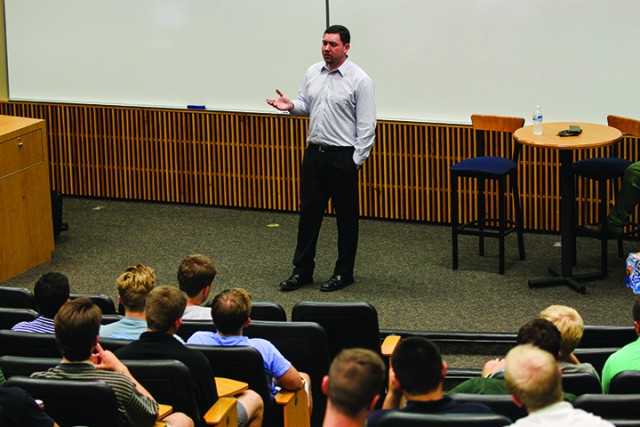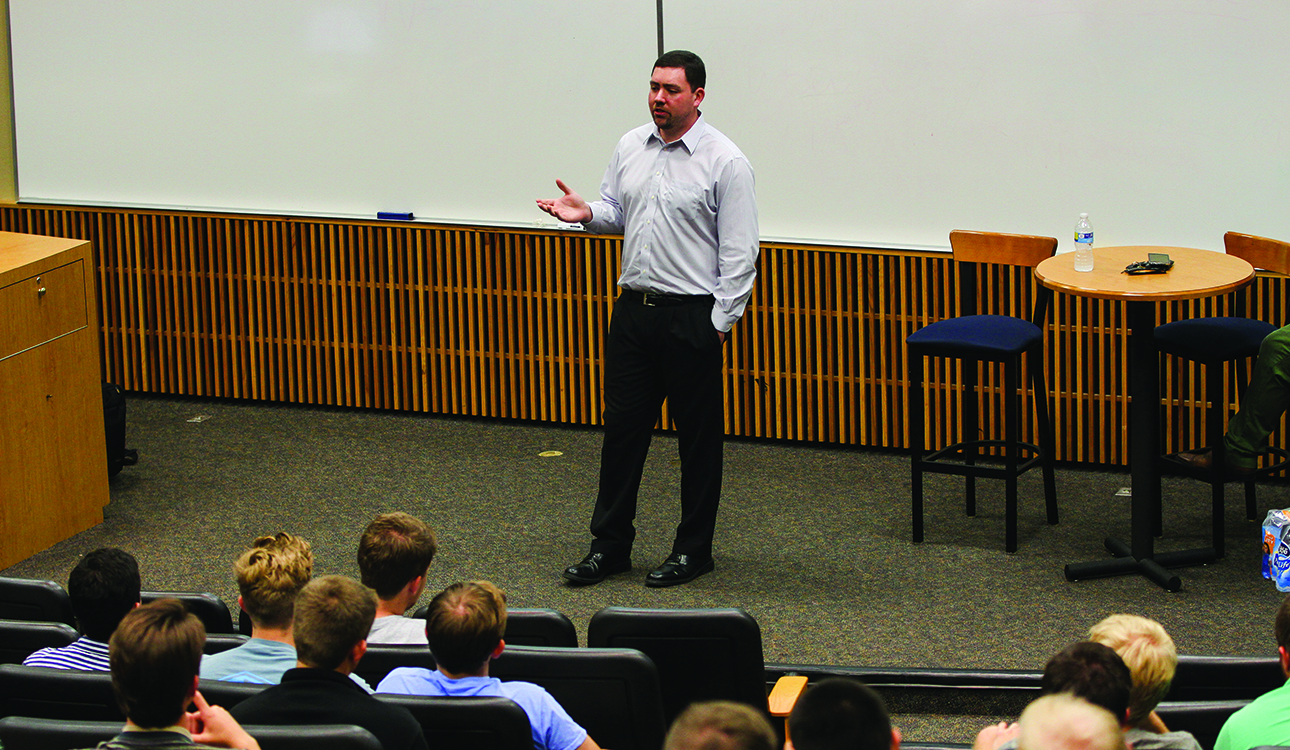
action. The lecture was for Frat Chat and aimed at preventing sexual assaults and the importance of eliminating
gray areas in consent.
Kevin Freeman | Lariat Photographer
By Dane Chronister
Reporter
Baylor’s Title IX representative Ian McRary held a campuswide fraternity chat on sexual assault prevention Thursday in Kayser Auditorium. The purpose of the talk was to educate the male student population about precautions that can be taken in order to ensure sexual assault is stopped before it begins and encourage bystander intervention.
“Being in a fraternity I feel like you all are wanting to be a part of something bigger than yourselves,” McRary said.
Where does Title IX draw the line and use the term sexual assault?
Consent is so important. According to the Baylor Title IX website, sexual assault is any unwanted sexual contact and includes the full range of sexual behaviors from fondling, kissing and oral sex all the way to completed rape.
If you were an undergraduate and you were wrongly accused of some form of sexual assault, what logistical approach would you take? Also, what amount of this information is shared to the public?
One thing I would do is to visit and see a campus attorney, advisor or even a law professor to see their perspective about the topic and help you through the process. I see a bunch of kids who have the opportunity to speak with someone for free and they don’t take the opportunity. To answer the other question, our office keeps it very confidential, just within our office, judicial affairs and the case management team that comes together and discusses where the investigation is going to head. We don’t go out on campus and make those affairs public.
I have heard people say that having any amount of alcohol in the body can make someone unable to use consent. Is this incorrect?
Yeah, it is. So there is a big difference between intoxication and incapacitation. What we are talking about is does she really understand what is going on that she could give consent in that situation. I don’t mean to come down on guys because men can be sexually assaulted too and that actually happens more than you think that it would, but the majority of these cases are women.
From what you have seen, what do you feel like the most sure-fire way in the moment that you can make sure you will not run into trouble?
It’s kind of based on the whole totality of the circumstance I mean one great question to ask is, “Are you cool with this?” You want to make her aware of her own actions. In this kind of situation you may even want to ask a silly question if she has been drinking to see if she is even cognitive like, “What do you think about Shakespeare?” You want to see what her response is going to be like. The reason being is that even if she is not black-out drunk, she can be incapacitated and stumbling over things and not aware of her own actions and may not remember anything the next day. Another fact is that consent can be revoked at any time before or d u r i n g s e x u a l contact.
What if you are both drunk?
Honestly, I have yet to see a case with two incapacitated people. Because if you think about it, if you are both at that point and not understanding the situation or what is going on, then sex just isn’t happening. Someone has got to be a little bit more coherent to what they are actually being engaged in.
Could you explain some of the Title IX resources available to students on campus?
There are a lot of different resources at Baylor and in the community and we have a whole list of people we can talk to in order to help a person’s situation. Going through a process like this, if you are accused, is pretty serious and pretty stressful and so you can reach out and talk with Patty Crawford, who is the Baylor Title IX Coordinator. You can also talk to your campus head chaplain, your doctors and counselors. And all of this process is confidential.






